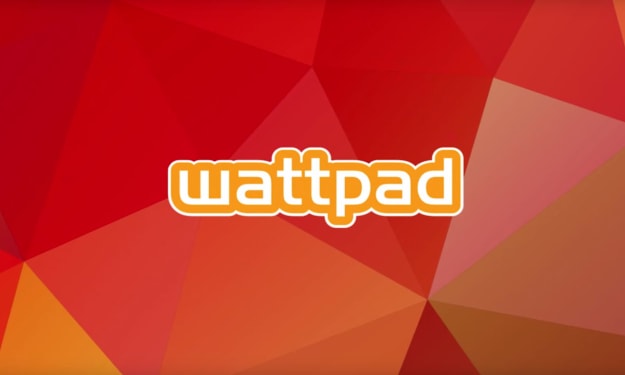An Interview with Chuck Sambuchino
Why you should hire an editor for your book

It’s a new year. It’s 2020, and with a new year, there comes a new cycle. Everyone wants a fresh start. Everyone wants to do something new or something different. Many of you will have that famous New Year’s Resolution, and since most of my audience is comprised of writers, I wanted to provide you all with a very special first article of the year.

I’ve been preaching for five years now that writers provide a sequential account of events. Editors transform that account into a story worth reading. Editors change a bunch of words, which describe scenes, into an experience everyone will remember.

My last interview with a professional in the publishing industry was with Anne Tibbets of D4EO Literary Agency. You can read all about how to land an agent from Mrs. Tibbets right here.
Since all agents require a professionally edited manuscript before so much as agreeing to represent a writer, I thought it best to interview the one person I consider the best editor—Chuck Sambuchino. The following is a series of questions I emailed Mr. Sambuchino, and he was kind enough to provide his answers.

I can never express my gratitude for his time and effort.
After the Q&A, I’ve added my notes to help explain why I keep writing articles about the proper way to edit a manuscript. I hope you read this Q&A carefully, because Mr. Sambuchino is quite literally telling you why you need a real life human editor and how best to hire a competent editor.
Why did you become a freelance editor?
I started freelance editing on the side when I was working full time at Writer's Digest. I did this because it was a goal to leave the 9-5 life and work for myself at home, and freelance editing was a good way to do that. After a few years of building a freelance editing business, I left Writer's Digest.
Now, I freelance edit full time, along with a variety of other things, such as planning writers conferences. (By the way, if anyone is interested in learning about my freelance editing & critiques, and my client success stories, you can see everything here. Reach out to me anytime you like.)
It really seems like self-published writers do not understand the difference between a proofreader and an editor. I believe that a writer is supposed to be familiar with proper punctuation, spelling, and grammar before attempting to write a book. As an editor, what exactly do you do for a writer who has submitted to you a proof read manuscript?
First, let's examine the difference. Proofreading (or pure copyediting) is simply reading something for grammatical errors. I don't really do that. I do developmental content editing -- story, characters, structure, etc. In other words, my job is a top-to-bottom critique of someone's work.
I say I'm a "freelance editor," but really what I do is an intensive critique, not an edit, per se. And yes, people should have a command of the English language and punctuation, etc., before approaching me or anyone like me. If I get a critique in with oodles of spelling mistakes, I usually just refund the money and nicely say the project is not for me.
Every self-published writer I know uses editing software in lieu of a real life person. I've never used software. I don't even like to use the spellcheck on Word. How do you feel about editing software, like are there any worthwhile programs?
I don't use any such software, and have no option of it, good or bad. Sorry.
Do you have any advice for someone who wants to become a freelance editor, like should they have a formal education, or should they join the EFA?
Great question about the EFA. I would assume that's a good idea, but I'm not certain because I never joined it.
Since I've been meeting writers for 15 years nonstop, I don't really advertise myself much, which is incredibly fortunate. In terms of the education, I don't think you need an MFA or whatever, but that certainly could help in your credentials.
I guess my advice would be to start slow and start cheap. Build up some success stories and referrals, and then go from there. Try and get involved in conferences -- ideally, paid gig -- and get clients that way. Meet people anyway you can and network -- Meetup.com, writers conferences, comment boards. That, and do a really good job.
Word-of-mouth referrals come from good performance.
What are your best tips on hiring a freelance editor?
Three things come to mind. First, referrals will help you. In other words, get involved in writing communities and groups -- use simple Google searches and Meetup.com.
If you get involved and get to know people, you can start asking people, "Have you ever used a freelance editor? How was your experience? What did they charge?" Stuff like that. So you can potentially find someone who has helped someone you trust.
Second, don't pay everything upfront. Some people will do a tiny edit for free -- like, "I will edit your first 4 pages for free, so you can see my skill." Me personally, I edit 40 pages to start. A writer pays me for 40 pages to critique those pages.
Once that "test edit" is done, then they decide if they want to move forward with a full deal (which is more expensive), and it also helps me get out of the deal if I felt no connection to the initial edit. So this initial "test edit" protects us both.
Third, when reviewing a potential editor's bio and website, etc., look for success stories, not just testimonials. A testimonial is "Chuck did a great job editing my book." Those are good and fine. But much more impressive will be "Chuck did a great job editing my book, and then I got an agent, [agent name]."
If you're a freelance editor, testimonials are easy to come up with and generate. But a success story cannot be faked, and are therefore, in my opinion, much more valuable.
I sincerely hope this interview helped some of you rethink the way you’ve been approaching writing and editing. A few things to keep in mind are:
Proofreading is more akin to reading something for grammatical errors. Some proofreaders, the great ones, will take an in depth look at your work; they might point out some redundancies, punctuation errors, and provide you with an overall idea of what might make your story better.
Yes, it is important to hire a proofreader.
Developmental content editing is an intensive critique of the story, characters, and structure. Editing software can't transform a one-dimensional character into a real life person.
You need to have a command of the English language before approaching an actual editor. Otherwise, you should hire a proofreader first, and I’ll suggest my good friend, Scott Kinkade, founder of Proofread Excelsior.
No real editor employs editing software. You’re fooling yourself with it. It does not edit.
If you’re looking to be an editor, you don’t need to join the Editorial Freelancers Association. Personally, I don't believe it'll hurt you to join them. You also don’t need one of those “degrees” often advertised on LinkedIn or Goodreads.
If you really want to be an editor, you need to understand what editing is. Otherwise, you can certainly begin by being a proofreader. Proofreading is extremely important, but you’ll need to already know how to properly use grammar and punctuation. If you have questions about punctuation, I always suggest visiting PurdueOWL.edu.
Finally, If you are going to hire an editor, and you should, and I’ll suggest Chuck Sambuchino, be sure to look into “success stories”. As Mr. Sambuchino explained, anyone can add “Mr. Smith did a good job on my book.” But only someone with real success stories will have a testimonial from a writer who landed an agent—that is, of course, if the writer in question was seeking an agent.
Even if you intend to self-publish, you should hire a competent editor. If you’re going to charge for your product, hire an editor, but be sure you’re hiring an editor and not a proofreader, or a flat-out scammer.
Again, you might want to hire a proofreader before an editor, but know the difference!
This is precisely why I release all these free articles. They teach what editors do. They also teach you that editing software is the self-published writer’s bane.
Please, please, take Mr. Sambuchino’s advice to heart. We’re only trying to help you guys out. The new year is here. So many of you are going to finally tackle that first manuscript.
Others of you are seasoned writers, but you still want to land an agent and a traditional publishing contract with your newest MS. The rest of you just want to publish the best of your art, and you’ll need an editor to do that.
Thanks so much for reading this interview with Chuck Sambuchino. Please visit his site here. Check out the Seattle Writing Workshop while you’re at it.
Be sure to also stop by StoriesbyDennis.com, where you have access to innumerable articles, stories, testimonies, and reports on reading, writing, editing, publishing, and marketing your books. Everything is free to read, so enjoy, and spread the word.
About the Creator
Aaron Dennis
Creator of the Lokians SciFi series, The Adventures of Larson and Garrett, The Dragon of Time series, and more.






Comments
There are no comments for this story
Be the first to respond and start the conversation.